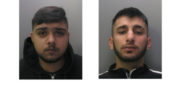I try to read as widely as possible, both those publications whose views I agree with and those with whom I do not. This is to avoid ending up in an ‘echo chamber’ situation where I only read that with which I already agree. However I was extremely surprised to see a writer for the centre-Left Observer newspaper coming out and standing up for a subject close to my heart, that of freedom of speech. It’s really not what I expected to see in a newspaper that is clearly on the side of the sort of Leftism that has been in recent decades hostile to the concept of free speech.
On Sunday the 2nd January of this year, the Observer writer Sonia Sodha wrote about the case of Harry Miller who brought a case to the Court of Appeal over a police visit that he had had by an officer who wanted to ‘check his thinking’ on trans issues. Ms Sodha quite rightly has praised Mr Miller’s win in the Appeal Court and has said something similar to what many of us on the centre right have said over the last few years which is that the police should have no part in suppressing political debate.
Ms Sodha stated in her piece how the system of the Orwellian sounding ‘non crime hate incidents’ came into being following the Macpherson Report into racism in the Metropolitan Police following the murder of Stephen Lawrence. Ms Sodha said that the idea behind recording ‘non crime hate incidents’ was well intentioned but has morphed into a system where people can get listed on a ‘non crime hate incident’ list merely for expressing ‘dislike’ or ‘unfriendliness’. I’d like to add that it was the aftermath of the Macpherson Report that brought into being the concept that a person’s mere ‘perception’ of racism or discrimination be the basis of a criminal investigation rather than there being any actual evidence of such. I believe that the use of ‘perception’ in such cases is wrong as how a person perceives something will differ from person to person. What may grossly offend one person would be mere banter for someone else. The use of perception as a basis for criminal investigations is also open to abuse as is the system of ‘non crime hate incidents’ themselves.
Ms Sodha then went into some detail about how the College of Policing has expanded the definitions of ‘non crime hate incidents’ into accepting complainants personal claims and perceptions that comments on social media had been motivated by ‘dislike, unfriendliness and hostility’. Ms Sodha then said:
This has become open to manipulation, with sinister consequences for freedom of expression. Anyone can complain to the police if they don’t like something someone says. It will get recorded as a hate incident, in a way that could significantly damage careers and reputations but with none of the due process of a criminal charge. And it is impossible to overstate the chilling impact of getting a call from a police officer warning you off exercising your democratic rights.
Ms Sodha is absolutely 100% correct here. The ‘non crime hate incident’ system and I would say by extension many other ‘hate crime’ laws are very much open to manipulation and abuse. I say that even though if necessary I could make use of these laws myself should the need arise. I find it grossly unfair and patently illiberal that a drunk who punches me in the face after an argument would get a lesser sentence than if he called me a ‘mouthy Yid’ before punching me. The physical damage is the same whether the words in question were uttered or not. ‘Hate crime’ laws end up creating a two tier society where some are protected from ‘offence’ or from certain words uttered during a criminal incident but others are not. This for me goes against the Biblical injunction that justice should be equal and that the scales of justice should not be bent. All should be treated equally by the courts and by the police but that is not the situation that has been created.
Ms Sodha added:
There are several other cases where the police have acted inappropriately against people lawfully expressing this (gender critical. ed) position. Some forces even have a track record of misstating the law to the public: last February, Merseyside police wrongly claimed “being offensive is an offence”, while the West Yorkshire police in 2018 threatened to prosecute anyone posting “insulting” messages on its Facebook page.
The police need to be politically impartial – they must not police people differently because of their political opinions. Yet there are numerous examples of police forces actively taking political sides in the sex and gender debate. Paul Giannasi, the national policing adviser for hate crime, has praised Lancashire police for expressing disappointment at lawful expressions of gender critical belief, congratulating them for their “initiative and empathy” in doing so. Several police forces pay the LGBT charity Stonewall for advice and training, despite Stonewall’s promotion of a contested political stance on gender identity.
Ms Sodha is correct. The police need to be politically impartial. Sadly they are not. This is in my view a dangerous situation. In order for police to be trusted by the majority of the non-criminal population, the police need to be seen to be operating in a non-political way. The problem is is that the very existence of the ‘non crime hate incident’ system, even though it was brought in for valid and correct reasons, has morphed into an oppressive system where the police act not according to the law, but according to how loud a member of a ‘protected group’ shouts. It’s a great irony that a system that was brought in to increase justice has turned into one where it is unjustly used to shut down political debate and harass those like Harry Miller who ask awkward questions of one particular group.






All this proves to me is that we are being forced down the rabbit hole into “1984” (Orwell)
This video is an insight, “Do not talk to the Police”